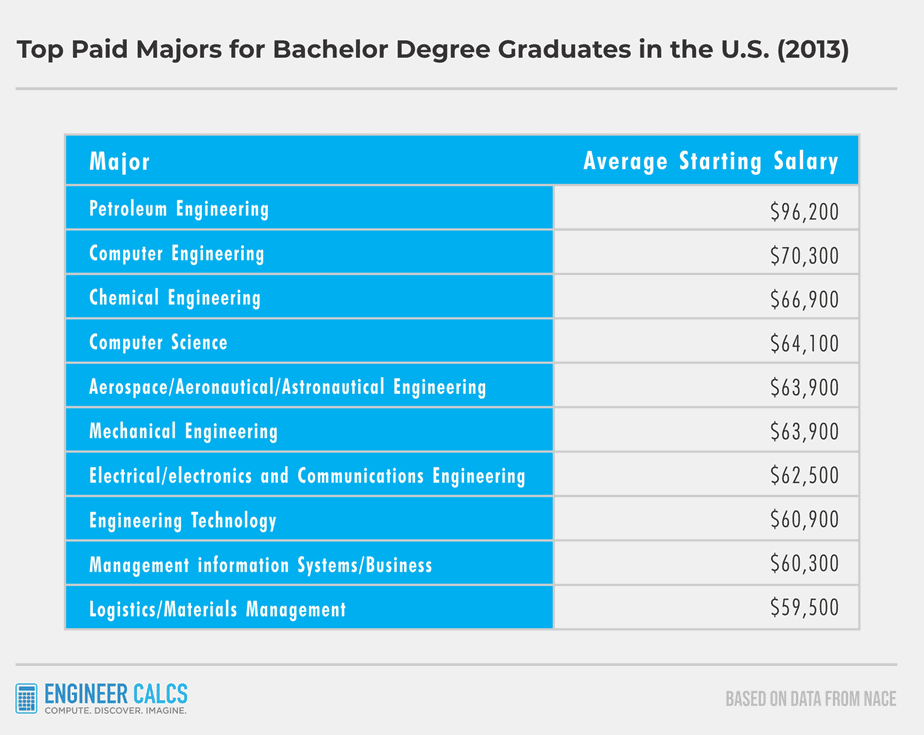Imposter syndrome made me feel like a fraud as a young engineer. But the hands-on experience was key to conquering this feeling.
I know I’m not alone – it’s something that plagues engineers across all disciplines.
To help you quickly shake off that nagging sense of self-doubt, I’m going to let you in on 6 hacks I’ve come up with. But first, let me give you a glimpse of my own journey as a greenhorn design engineer and delve into the root cause of imposter syndrome, so you can truly grasp why it even rears its ugly head in the first place.
My wild ride with imposter syndrome as a design engineer
As a rookie engineer, imposter syndrome hit me like a ton of bricks. I found myself wondering:
- Why are people twice or even three times my age asking me for advice?
- How am I responsible for designing this massive, intricate project?
- Why are they shelling out so much dough for a fresh-out-of-college newbie like me?

It’s ironic, really. I genuinely believed I deserved success right after college, but at the same time, I couldn’t help but question why others didn’t have my position instead of me. I kept these thoughts to myself, but they rattled around in my head relentlessly.
Imposter syndrome: Born from life’s whirlwind changes
The faster you skyrocket in your industry, the harder imposter syndrome can hit. Picture an up-and-coming actor who suddenly stars in a box-office smash. They go from being a nobody to an overnight sensation, with people treating them differently in the blink of an eye.
But when an actor gradually climbs the ladder of success, imposter syndrome tends to be less intense. Your mind can adjust, giving you time to soak in the changes. It’s like living your new reality in sync with your mind, instead of being stuck in the past.
In my case, everything was a whirlwind. I went straight from academic problem-solving to tackling huge, real-world projects. My brain was still trying to wrap itself around the transition from theoretical to practical. That’s one reason I think engineering education could use a makeover.
It’s like learning to swim by reading about it at home, and then suddenly finding yourself flailing around in a lake.
The data below from TeamBlind.com illustrates how even top tech wizards can feel like imposters on the job. Trust me, it’s more common than you might think.
| Tech Company | Percent of tech employees experiencing imposter syndrome |
|---|---|
| Expedia | 72.88% |
| Salesforce | 66.88% |
| Amazon | 64.48% |
| 59.31% | |
| Microsoft | 56.21% |
| 55.99% | |
| Intel | 54.00% |
| eBay | 49.69% |
| Apple | 45.45% |
Why the “fraud” feeling?
You might be attaching too much prestige to a job title or idolizing professionals in your field a little too much, perhaps due to the media’s larger-than-life portrayal of industry bigwigs.
So, you end up feeling unworthy of your position, thinking you’re just an average Joe or Jane…

Important Note: Often, we assume others know way more than we do. But in my experience, that’s not always the case. Some folks are just masters of talking the talk without really walking the walk, or they’re skilled at dishing out persuasive bullshit.
Feeling like a fraud often stems from our insecurities. As rookie engineers, we can’t help but compare ourselves to our more experienced peers:
- Their resume covers three decades, while yours spans just two years
- Their white hair signals wisdom, while you’re decades younger
- They’re the life of the party, while you’re more of a wallflower
- They drive a swanky sports car, while you take the bus to work
When we entertain these irrational thoughts, our insecurities morph into bad habits, and honestly, it’s just self-sabotage. We’re constantly on the lookout for reasons to keep ourselves down, never setting our sights high. We’d rather play it safe in our comfort zones.
For instance, we all have brilliant ideas, but we’re too scared to share them, fearing criticism. We also assume others know better without any real evidence. Subconsciously, we’re putting them on a pedestal.
Now, think about this. Would you be afraid to express your ideas to a room full of first-graders? Probably not!
You wouldn’t care if any of those kids judged you or your ideas. Heck, you wouldn’t even mind if you sounded like a doofus. That’s because you don’t see them as your intellectual equals.
The fear of getting posterized in the NBA
Ever noticed that some NBA players never get dunked on?
That’s because they never try to defend a dunk. To block a shot at the rim, you have to accept the risk of getting dunked on. Some players dread winding up on ESPN’s highlight reel as the posterized victim. Others might not feel worthy of contesting a dunk from a superstar player.
Confident NBA players, however, know that you win some, you lose some. One play, you get dunked on; the next, you make the game-winning block.

In many ways, engineering is like the NBA. To maximize your chances of success, you can’t let insecurity hold you back. You need to show off your skills and take risks. After all, someone hired or works with you because they believe in you.
How to overcome the imposter syndrome
Over the years, I’ve come up with six ways to beat feeling like a fraud. I use these techniques myself, and they’re applicable across industries.
Now, sometimes, that nagging sense of fraudulence never really goes away. But it does fade over time.

Important Note: These techniques only work if you’re actually competent in your field. Say you’re a computer programmer. If you can’t code, no amount of following my advice will stop you from feeling like a fraud. You might be able to fake it for a while, but eventually, the truth will out.
#1 We’re all human
Have you ever stopped to think that we’re all human?
It’s pretty obvious, but we all eat, sleep, and use the restroom like clockwork. We all have fears and insecurities, and not a single one of us is immune to these emotions and behaviors. Don’t be fooled by what you see on Instagram.
Once I fully embraced this simple fact, I stopped seeing anyone as above me. After all, we’re all just inhabitants of the same spinning rock, orbiting the same fiery ball.
Steve Jobs famously said:
“When you grow up you tend to get told the world is the way it is and you’re life is just to live your life inside the world.
Try not to bash into the walls too much. Try to have a nice family, have fun, save a little money.
That’s a very limited life.
Life can be much broader once you discover one simple fact: Everything around you that you call life was made up by people that were no smarter than you and you can change it, you can influence it, you can build your own things that other people can use.
Once you learn that, you’ll never be the same again.”

Steve Jobs hit the nail on the head when he reminded us never to let anyone make you feel inferior. And you know what? Stargazing is an awesome way to humanize everyone around you.
#2 Get personal with your professional peers
Take some time to chat with colleagues you admire and trust in your field. Find out how they got their start and what their journey has been like. You’ll gain a rare glimpse into the lives of people you respect.
For me, this is the perfect way to peel back the layers and see these so-called experts for who they really are – just regular folks like you. They’re not untouchable, godlike figures born with all the knowledge in the world. Heck, even the most confident among them have probably battled imposter syndrome at some point.
Here are a few questions you might want to ask:
- How long have you been in the field?
- Do you always feel confident discussing technical subjects?
- Did you have any insecurities when you first started out? If so, how did you overcome them?
- What advice can you give me to boost my self-confidence at work?
And remember, asking questions isn’t a sign of weakness – it’s a mark of strength.
Listen to how seasoned pros think, and you’ll soon realize their thought processes aren’t all that different from yours. You might even find you share some traits with those 10x engineers you’ve always admired.
#3 Speak up, step out of the shadows, and shine
Don’t be a wallflower – let your voice be heard!
A nifty trick is to start small by speaking up about less intimidating topics. For example, ask about the project timeline during a meeting. This simple act can help build your confidence and encourage you to speak up more.
As you contribute to discussions, your peers will respect you more for being engaged and proactive. This creates a positive feedback loop – the more you talk, the more confident you become, and the more imposter syndrome fades away.
An added bonus is that you’ll get valuable feedback on your ideas, helping to hone your engineering skills and boost your confidence even further. And trust me, most engineers – even the grumpy-looking ones – love giving feedback.
#4 Break free from imposter syndrome and soar with confidence
Understand your enemy – imposter syndrome. This pesky feeling often stems from significant life changes and lingering insecurities. But guess what? It also goes hand-in-hand with the journey to success.
I’ve come to see imposter syndrome as a sort of secret key to unlocking greatness. To reach new heights, you must first conquer that nagging self-doubt.
Think of it like weightlifting. You feel the burn with every last rep, and all you want to do is collapse in a sweaty heap. But pushing through those final reps is what builds muscle. So, over time, you learn to embrace the struggle because it’s what makes you stronger.
The same goes for engineering. Push through the initial imposter syndrome phase, and you’ll come out the other side brimming with confidence and well on your way to mastering your field.
The trick, though, is to spot imposter syndrome right away. By recognizing that feeling, you can take control of it. I’ve trained myself to push past the tough beginnings of any new work I do. I know that imposter feeling is just a stepping stone to leveling up.
#5 Fake it until you make it
We’ve all come across the saying “fake it until you make it” at some point. Why? Because there’s some real wisdom in those six simple words.
Subconsciously, we all live by these words daily. We try to seem smarter, wealthier, more impressive, and so on. As social beings, we judge each other based on appearances.
If I see you acting and looking a certain way, I might view you as more credible. And boom! You’ve won half the battle. You’ve made me a believer. In return, I’ll talk to you differently, boosting your confidence.
Plus, by faking certain actions, you’ll feel empowered. Because, over time, these actions will evolve into winning habits.
So sell yourself properly to speed up the process of overcoming imposter syndrome. But be warned: you do need the skills to do your job. Without any skills, you’ll be exposed and lose your edge.
For instance, you might win a contract to build a bridge by talking a big game. But if you lack the skills to design the bridge, you’ll just end up with a lawsuit.
Assuming you’re skilled, go study the top dogs in your industry. Copy them, but add your personal touch to stand out. Here are some ideas of what to copy:
- Wardrobe
- How to start discussions
- How to treat colleagues and clients
- Study habits
- Design habits
- Demeanor

Imposter syndrome as the U.S. president
Picture being the U.S. president. There’s no handbook on how to run the country. I bet almost everyone would feel like a fraud leading a nation of over 330 million people.
As the president, you need to fake it until certain actions become second nature. This is how a senator turns into a president, and then, post-presidency, reverts to being an everyday citizen. All these major life changes can trigger imposter syndrome.
As I mentioned, the key is to repeat certain actions until they become habits. I’m sure all new presidents study their predecessors to learn the dos and don’ts. Then, over time, they add their personal touch to the role.
#6 Keep learning
Unsurprisingly, the more knowledge you acquire, the more confident you’ll become.
Take chess as an extreme example. As a newbie, you’d feel like a total fraud if you had to face a chess grandmaster. But what if you had every chess move mapped out in your mind?…
Like a computer, you could rapidly calculate and always choose the right move. I guarantee your imposter syndrome would vanish faster than a snap of your fingers.
The main takeaway is to learn as much as possible. Whenever I tackle new work, I soak up as much knowledge as I can by:
- Binge-reading books like a bookworm
- Scouring the internet and reading endless forum pages
- Watching YouTube videos like my life depends on it
- Chatting with the brightest minds around
- Studying project case studies, both the wins and the flops
This learning method never lets me down. In no time, I find myself on par with the so-called experts. They say it takes about 10,000 hours of practice to become an expert, but check out my table below to see how you can speed up the process.
| Year | CASE #1: hours worked/Year (40 hour work weeks) | CASE #2: hours worked/Year (80 hour work weeks) |
|---|---|---|
| 1 | 2,080 hours | 4,160 hours |
| 2 | 2,080 hours | 4,160 hours |
| 3 | 2,080 hours | 4,160 hours |
| 4 | 2,080 hours | - |
| 5 | 2,080 hours | - |
| Total hours | 10,400 hours | 12,480 hours |
By putting in 80 hours a week, you can reach that 10,000-hour milestone in 2.5 years instead of 5. A little sacrifice goes a long way in boosting your confidence. Plus, you can use these resources I’ve written to level up even more:
- 5 NASA engineering mindset lessons for engineers
- The untold skill: Do engineers do hands on work?
- 5 Ways to master leadership in engineering
- 4 lessons to learn from engineering failures
- 5 key social qualities of a great engineer
- 15 non-technical things every engineer should know
- Engineering mindset examples by 10x engineers
- 10 ways on how to improve as an engineer
- The 17 Elon Musk learning strategy lessons
- 10 easy tips on how to work like a machine
Conquering the imposter syndrome
Shakespeare wasn’t born a playwright, you know. Everything worth doing in life takes time to master. And let me tell you, imposter syndrome loves to lurk on the first step of every journey.
So, give yourself a little push in the beginning to quickly adapt to new work. My goal is always to kick imposter syndrome to the curb ASAP, so I can reach my goals faster.
If you give up too soon, though, you’ll let imposter syndrome win.
Have you ever battled imposter syndrome? If so, how did you beat it?
